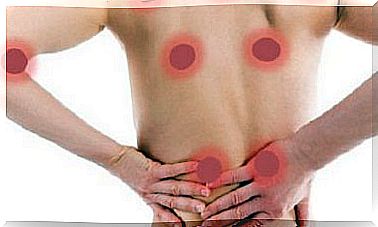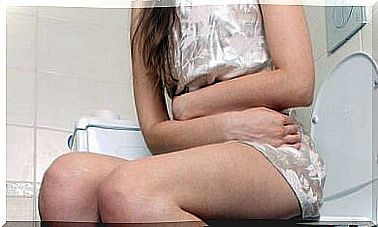Herniated Disc: Causes And Symptoms
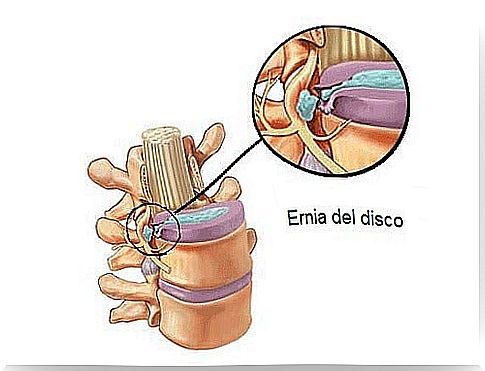
Many people suffer from a herniated disc. Painful and disabling, it is a serious problem worth knowing. As is known, the spine is made up of a complex series of small bones called vertebrae, but it also involves muscles and ligaments that could create problems at some point. To find out more, keep reading this article.
How to recognize a herniated disc in the spine
1. What is a herniated disc?
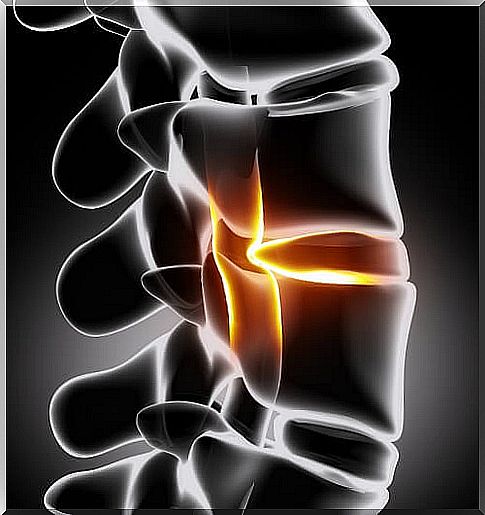
What are these spinal discs that cause so much pain and discomfort? To understand this, we must consider the tissues present between the bones of the spine, which have a soft consistency and an external covering, the fibrous ring, and act as shock absorbers, adapting to our movements. These tissues are called intervertebral discs and are responsible for herniated discs. These, in fact, can wear or become damaged, with the result of causing, once the outer covering breaks, the release of the pulpy white tissue that puts pressure on the nerves and causes pain, as well as losing the shock-absorbing capacity.
2. Why do you have a herniated disc?
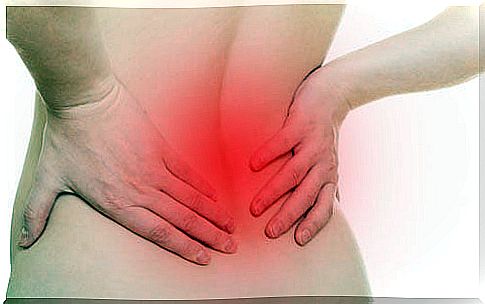
Basically, the symptoms of a herniated disc manifest over the years. As time passes, the spine becomes less flexible, becomes stiffer, and the ligaments surrounding the discs can wear down. The intervertebral discs also become stiffer, as they lose their ability to hydrate and wear out. We experience pain without knowing the reason: for this reason it is important to know the symptoms of a herniated disc.
3. What are the symptoms of a herniated disc?
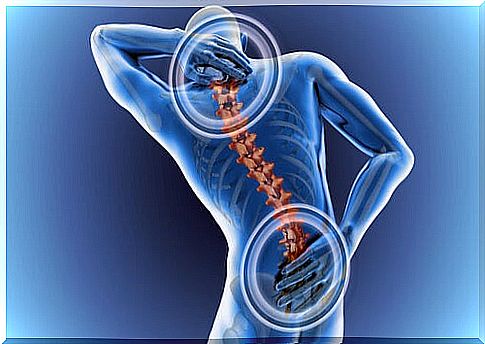
- First, based on where you feel the pain, you can identify where the hernia is. IS important.
- If your legs hurt, if you fall asleep or are heavy, if you have tingling or numbness, it is possible that the slipped disc is in the lower back. If you experience discomfort in the mid-back, it is likely a dorsal hernia. If you notice tension or pain in the neck and also in the arm area, then you may have a cervical hernia.
- Symptoms of a cervical disc herniation: you feel pain in your neck, you feel stiff, you cannot move it to the side, you have neck cramps that go down to the shoulders and arms; you may also feel nauseous and faint. In addition to these symptoms, it is normal for your arms and hands to fall asleep during the night, to struggle to lift weights, to feel weak and to fall asleep. IS very annoying and disabling.
- Symptoms of a lumbar disc herniation: in this case the pain is concentrated in the lower back and is very strange; you may also feel a strong heat that forces you to keep your back straight, almost tense. You experience muscle stiffness that is accompanied by cramps that can also reach the legs. IS a radiating pain, also known as sciatica or sciatica. Many people also report foot pain, tingling, weakness and even incontinence. These are extreme cases, but if you experience these symptoms, do not hesitate to contact your doctor immediately.
- Doctors also speak of radiated pain. What does it mean? It means that one part of your body hurts, but the hernia is actually located in another area. For example, you feel pain in your legs, but the hernia is on your back. IS a problem that mainly affects an intervertebral disc. IS very common, for example, to feel pain in the buttocks that goes from the back to the inner leg. If this happens to you, know that you may suffer from radiculopathy. However, your doctor will be able to make a more certain and accurate diagnosis.
4. When do you need a doctor’s help?
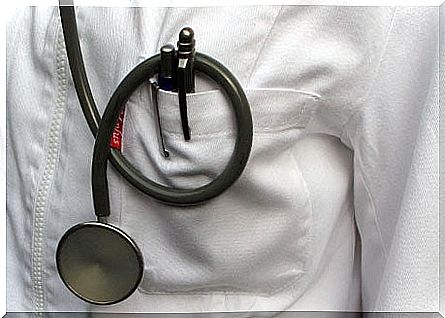
The pain caused by any type of herniated disc prevents you from leading a normal life. You cannot walk, work or carry weights as you always have. You have difficulty sleeping and even sitting in a chair. If you have these symptoms for several weeks in a row, contact your doctor to have you undergo a specific check-up in order to obtain a correct diagnosis.
In case of urinary incontinence or loss of control of the sphincters, doctors recommend that you go to the hospital urgently. The hernia responsible for these symptoms is hindering the normal functions of the body: it is a very serious problem that must be solved in time.
In general, surgery is used. Don’t worry: interventions of this type have a high success rate and allow you to return to your normal life. So, now that you know the symptoms of herniated disc, pay attention and don’t hesitate to call your doctor if you have any questions. Remember that the quality of your life is at stake.


